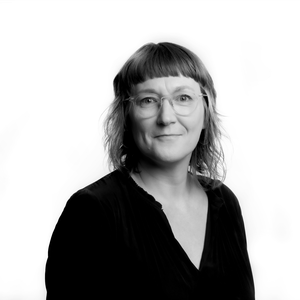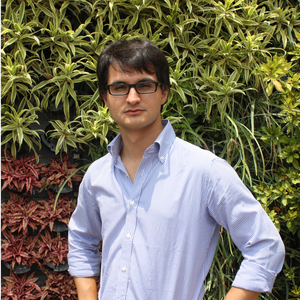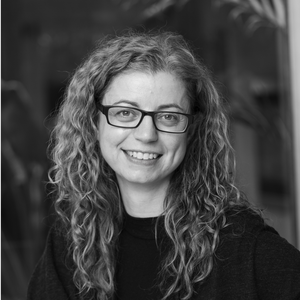
Elisa Cattaneo
Professor at Domus Academy- Climate change and restructuring of landscape architecture education, a perspective from Europe
- Summary and Q&A
Elisa C. Cattaneo researches experimental ecological design and its theoretical implications, to generate new territories of imagination. In particular, considering the design as a “weak” field evolvable and renewable through new transdisciplinary approaches. The concept of weakness is set up as an open research platform and has been presented in several exhibitions, Biennial architecture (Tallin, Venice, Santiago del Chile), publications, and conferences.
PhD in Architecture and Urban Planning, she was Visiting Scholar at the M.I.T. (2010) and at Harvard University (2011-12). She is founder and director of the Agency of research B.L.U. active in studies, research, and project development in contemporary design, and principal of her firm, engaged in public projects and international competitions.
She has been teaching at many Italian universities (Politecnico di Milano, di Torino, Domus Academy); curator of conferences and exhibitions (as Milan Capital of the Modern at the Expo 2015 Architecture Pavilion in Milan; Verde Prato, 2019; Seeds, 2022).
She is author of books on design theory (as Andrea Branzi. The project in the Age of Relativity, 2018; Nature through the Mirror, 2016), and she constantly writes for the Italian Newspaper Sole 24 ore.

Monica Kuo
President at IFLA APRProf. Monica Kuo is the chair & dean of Environmental Planning & Design College, Dept. of Landscape Architecture, Chinese Culture University. She is also the honorable president of Chinese Taiwan Landscape Architects Society (CTLAS) and the winner of Outstanding Achievement on Landscape Planning for Tung-Yuan Award, Taiwan.
After received the MLA from U. of Penn., she started her professional practice in Philly. Then she returned to Chinese Taiwan joining the first frontier task, working on the survey and planning of six National Parks in Chinese Taiwan. Following the public services, she was invited as the chair of the Dept. of Landscape Architecture in C.C.U. Since then, with her great interest and passion on research, practicing and teaching, she devoted most of her effort on the promotion of the status of Landscape Architects as well as wide range of Eco-Urbanism, Wetland Protection, Coastal Zone Management, Public Arts and Nature Conservation in Chinese Taiwan.
Prof. Kuo is one of the few scholars persistently dedicated in the wide spectrum of public policies on the environmental protection, landscape education as well as nature and culture conservation.

Claire Martin
Immediate Past President at AILAClaire Martin is a Registered Landscape Architect and Associate Director of OCULUS. She is a Fellow and National President of the Australian Institute of Landscape Architects, and Chair of the International Federation of Landscape Architects (Asia-Pacific Region) Climate Change Working Group. Claire is passionate about design education, advocacy, and communication and is a member of the Office of the Victorian Government Architect’s Victorian Design Review Panel, a contributing editor of Landscape Architecture Australia, and a regular guest lecturer at RMIT University, where she has taught, is an invited critic, and a member of the Landscape Architecture Industry Advisory Committee.

Alessandro Martinelli
Associate Professor at Dept. of Landscape Architecture / Environmental Planning & Design College Chinese Culture UniversityPreviously involved in research projects and didactic activities at the Accademia di architettura in Mendrisio and the International Institute of Architecture in Lugano Vico Morcote, the Berlage Institute in Rotterdam, the Barcelona Institute of Architecture, the Canadian Centre of Architecture in Montreal, the Archivio Cattaneo in Cernobbio, the Shih Chien University and the Huafan University in Taipei, Alessandro Martinelli, Ph.D., is Associate professor at the Department of Landscape architecture, the Chinese Culture University, Taipei. He is also the editorial director of ListLab Publisher (listlab.eu), Chair of the Education & Academic Affairs Committee, International Federation of Landscape Architects, Asia Pacific Region charter, and works together with BIAS Architects & Associates (biasarchitects.com) on architectural and curatorial projects that concern the public space today.

Rosalea Monacella
Faculty member at Harvard University Graduate School of Design- Climate change and restructuring of landscape architecture education, a perspective from US/Australia
- Summary and Q&A
Dr. Rosalea Monacella is a faculty member of the Landscape Architecture Program at the Harvard University Graduate School of Design. Her expertise is in the careful indexing and shifting of dynamic resource flows that inform the landscape of the city. Her design research practice explores the notion of the ‘thickened ground’ through a careful and rigorous investigation of an expanded ecology of economic, ecological, and social systems that shape the metabolic and material flows of the city. Speculating on alternative near-future cities and how they might respond to climate change, changing resource flows and ecologies of energy.